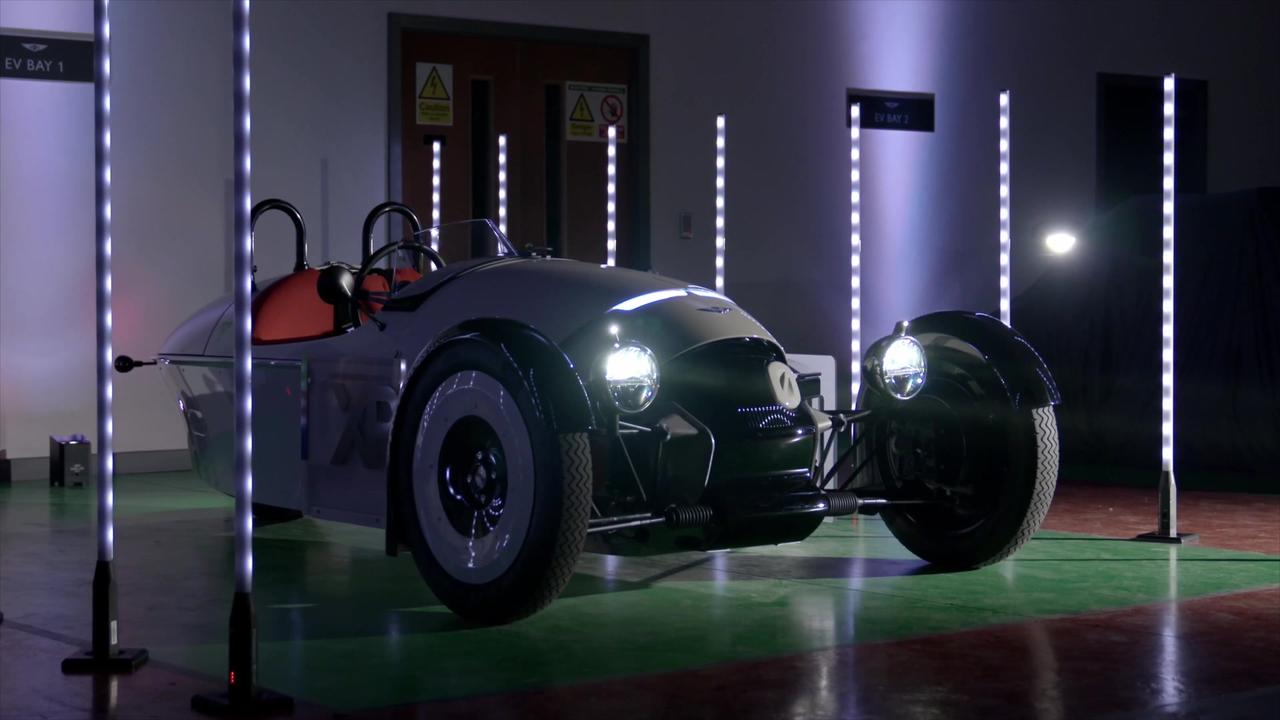
Morgan Motor Company is planning its electric future and sharing details of a new development vehicle that will act as the forerunner to all future electric Morgan sports cars.
Referred to as ‘XP-1’, the experimental prototype will provide key information to the engineers and designers at Morgan as they embark on creating the company’s first production electric models.
Developed over the last 12 months by Morgan’s team of engineers based in Malvern, Worcestershire, XP-1 is based on Super 3’s aluminium platform.
The striking prototype is not intended for production but has been created to enhance thinking in several key areas including driving characterisation, powertrain development, in-house EV competence and training, and new feature ideation and testing.
Following 12 months of design and build, XP-1 will now embark on a comprehensive testing programme during the next 18-24 months, undergoing continual evolution to test new technology and features.
XP-1’s battery, motor and inverter combination represents Morgan’s first powertrain, internal combustion or battery electric.
The powertrain, engineered specifically for XP-1, gives Morgan’s engineers complete control of calibrations that vary the throttle and regeneration level at different speeds, in order to create a range of driving modes featuring a mix of driving characteristics.
To aid with the identification of suitable component combinations for the powertrain – both for XP-1 and future Morgan electric models – an in-house developed full vehicle toolchain has been created.
This toolchain is key to modelling the compatibility and suitability of a range of different powertrain components, calculating the range prediction algorithm and simulating different scenarios that can help the company to benchmark against future requirements.
Ensuring that future electric Morgan sports cars are lightweight – as they have been throughout the company’s 114 year history – is a key requirement.
This weight requirement is fundamental in the decision for the company to create its own powertrain combination, working with key partners and utilising industry leading components.
As such, XP-1’s weight is comparable to that of the production car it is based on.
